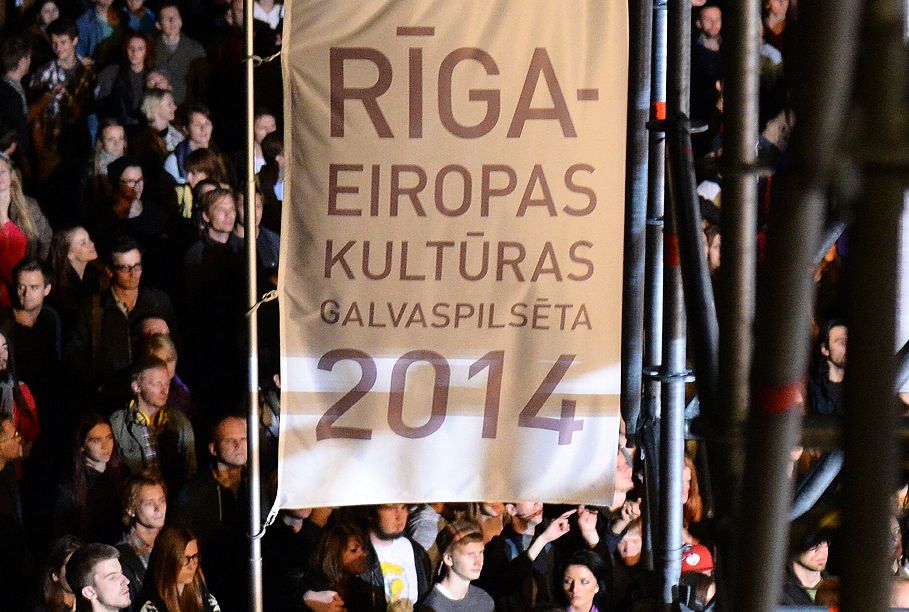"As the end of the year approaches, Rīga, as a European Capital of Culture, is being held up as one of the most successful Capitals of Culture... the program involved 90 different countries... and were of high artistic quality and achieved a high profile both in the local community and internationally," the organizers said in a statement.
However, instead of restaing on their laurels they insisted the experience should not be wasted: "It is imperative to convert the European Capital of Culture outcomes into long-term initiatives," the statement said.
“This year is a turning point. We all wanted to build this year in a meaningful way with substance, with projects that were implemented to a high-quality artistic and professional organisational level. And we succeeded," said Diāna Čivle, Director of the Rīga 2014 Foundation, who has been the public face of the cultural year.
"We have been able to show that the status of European Capital of Culture can be more than a formal slogan, but a way to underscore our own cultural identity, talent and excellence in the European mix, which would reinforce every person’s awareness of their creativity and special worth. This is the leap in terms of quality," Čivle said.
More than 12 000 participants from nearly a hundred different cultural bodies, are reckoned to have taken part, including 1,900 individual artists. LTV viewing figures show that broadcasts of Rīga 2014 events, concerts, opera and other activities reached a total of 6.2 million viewers.
To date more than 1.5 million people have already attended Rīga 2014 events with several showcase events such as the European Film Awards still to come.
According to a report by the European Travel Commission, the number of foreign tourists in Latvia increased by 18.9 % in the first half of the year, the second largest increase in Europe in that period, though what role the Capital of Culture badge played in the rise is unclear.
Most of that happened thanks to Rīga being awarded the title of European Capital of Culture and focused cooperation with the Latvian Ministry of Foreign Affairs, all Latvian representations abroad, the Latvian Institute and tourism authorities in promoting European Capital of Culture events in Latvia and worldwide for several years beforehand.
“I am convinced that we have put down a clear dividing line – Rīga before the Capital of Culture year and Rīga after the Capital of Culture year. People’s self-esteem is also different after this year,” said Uģis Brikmanis, curator of Rīga 2014’s Thirst for the Ocean program.
Gints Grūbe, curator of Rīga 2014’s Freedom Street program, stressed the need to be forward-looking, saying: "It is essential that the resources and potential for cooperation between people created during the Capital of Culture are utilised in the long term, such as in thinking about Latvia’s upcoming centenary and the future development of the non-government cultural sector.”



































